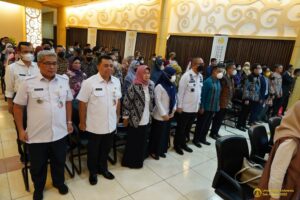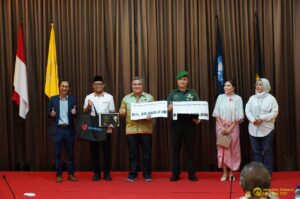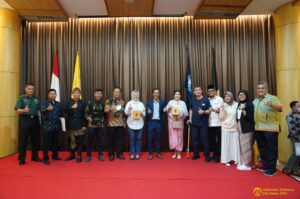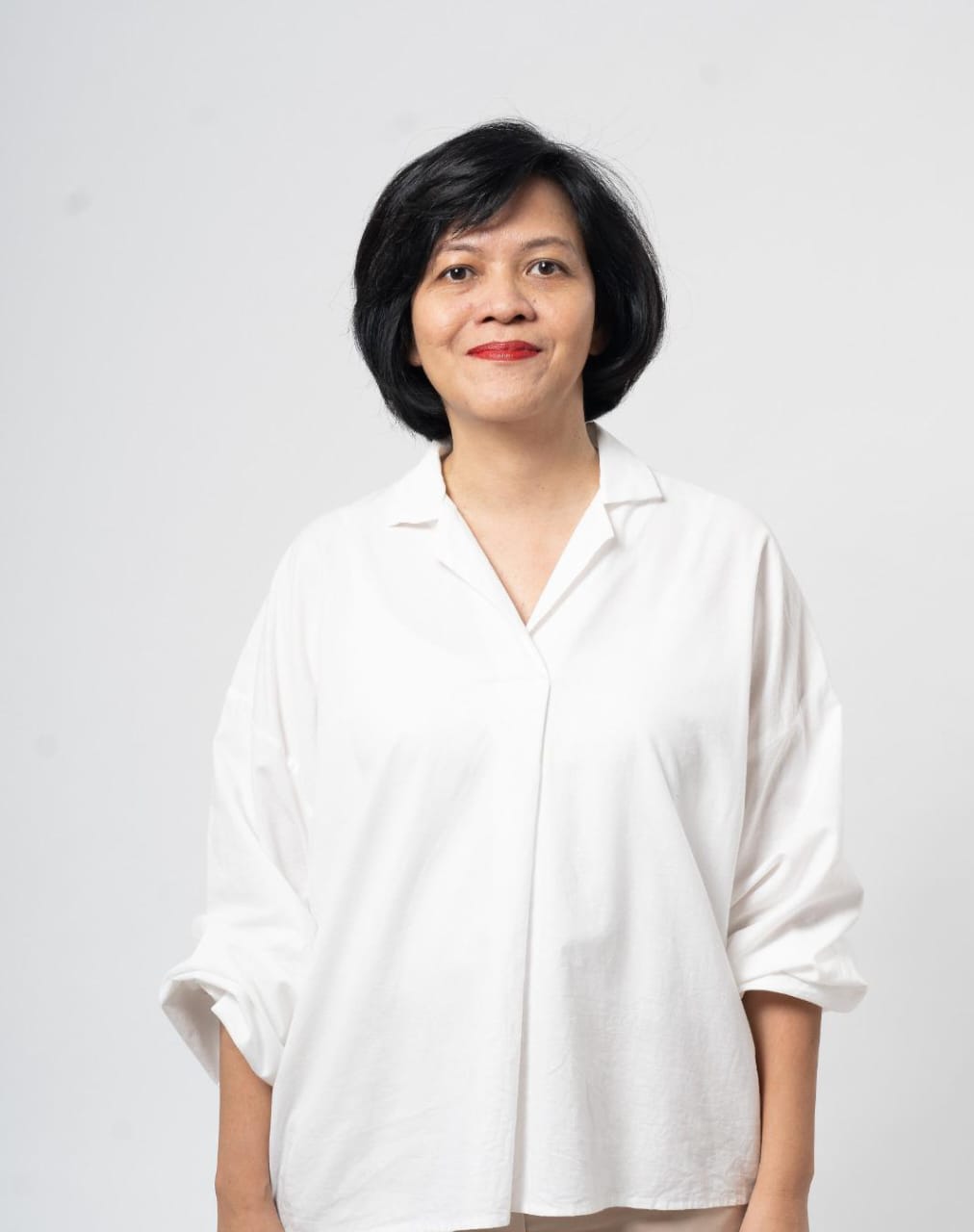
Based on Global Innovation Index released by World Intellectual Property Organization (WIPO), in 2021 Indonesia’s innovation ranking will be below other countries in the Southeast Asian region, namely Singapore, Malaysia, Thailand, Vietnam, and the Philippines. In fact, Indonesia’s gross domestic product (GDP) is far above those of these countries. For the past 10 years, Indonesia has always been below Singapore.
This is definitely a general concern considering that Indonesia is projected to achieve its highest achievement in 2045 (Golden Indonesia 2045) when 70% of Indonesia’s population are those of productive age (15-64 years). All parties must participate in reviving the trend and culture of innovation in Indonesia so that various opportunities can be utilized to find solutions to facing challenges.
To support this, the School of Strategic and Global Studies (SKSG) of Universitas Indonesia (UI) was holding a national level competition, Three-Minute Telling-Innovation Competition (TMTiC) 2022 entitled “Inovasi dan Daya Cipta untuk Indonesia Emas 2045: 100 Tahun Kemerdekaan” (Innovation and Creativity for Golden Indonesia 2045: 100 Years of Independence) to foster innovation ecosystem among academics and the public. This competition took place in August–November 2022 with the peak of the event being held on Wednesday (7/12), at Ruang Apung Danau Kenanga, UI Library, Depok Campus.
Director of SKSG UI Athor Subroto, Ph.D. said that TMTiC is a transformation of the Three Minutes Thesis Competition, which is held annually by SKSG. This transformation has become wider because it emphasizes innovation, not just a thesis. “I congratulate the finalists who were tightly selected. The innovations presented by the participants certainly made it difficult for the jury to choose the best of the 9 selected finalists. The judges must see in detail how these innovators will be able to support Golden Indonesia in 2045,” said Athor.

TMTiC 2022 competition was attended by participants who were students from various levels of education and the general public. Participants were divided into four categories, which are the Undergraduate Student Category, the Master’s Student Category, the Doctoral Student Category, and the General Participant Category. In this competition, participants must submit their innovative work along with a 3-5 minute video containing the visual storytelling of the work.
“TMTiC has selected 33 videos of innovative works. Of these, 20 videos passed the preliminary round. Furthermore, from 20 semi-finalists, 9 finalists were selected with 10 works. The nine finalists presented their innovations before the National Jury Board,” said Dr. Polit. sc. Henny Saptatia D.N., M.A., as the Head of TMTiC 2022 National Committee.
Presentations on innovation were delivered by the finalists within 3 minutes. For the Master’s Student Category, presentations were delivered by Herwan Hadi with the topic “Traditional Horsebow Archery”; Anisa Anggraeni with the topic “Combining Two Different Disciplines: Ethnobiology and Geospatial Information Systems to Help Develop Conservation Strategies for Underutilized Fruit Trees (UFTs) in Indonesia; and Ir. Imam Budi Hartono with the topic “Dkerens Application”. Of these three participants, Anisa Anggraeni won 1st place.
In the Doctoral Student Category, presentations were delivered by Musa, S.A.P., M.Tr.A.P with the topic “Storage Co-fish and Harmul Eco-village”; Kol. Kal. Ir. Wempy Pasaribu, M.T., M.A. with the idea of “Concept for the Development of Water-Air Strips in Remote Areas Near Rivers, Lakes, and Beaches to Support Transportation, Humanitarian Assistance, Tourism, and Fisheries”; and dr. Arsanto Triwidodo, Sp.OT(K), MHKes. with the topic “Implants–Medical Devices”. On that occasion, dr. Arsanto was chosen as the first winner.
As for the General Participant Category, the presentations were continued by Rulaa Azzah Amalia with the topic “Foodiewell: A Platform of Healthy Daily Meal Planner for Non-Communicable Diseases”; Kolonel Arh Dr. Ir. Nur Rachman Supadmana Muda, M.T. with the topic “POLTEKAD KODIKLATAD Combat Robot”; and Rudi Hartono, S.Pd. with the topic “Digital Mangrove Planting Innovation in Rural West Kalimantan”. Of the three topics, Rudi Hartono won 1st place.
Final National Competition TMTiC 2022 was attended by the judges, Editor in Chief of Majalah Hukum dan Politik, Keadilan, Panda Nababan; Professor of UI, Prof. Dr. Ir. Abhimanyu, T.A., DDP., M.S.; Dean of the Faculty of National Security, Universitas Pertahanan, Mayjen TNI., Dr. Ir. Pujo Widodo, S.E., S.H., S.T., M.A., M.D.S.; Main Commissioner of Bank Kalimantan Barat (Kalbar), Irjen Pol. (P) Drs. Didi Haryono, S.H., M.H.; Head of Regional Office of Ministry of Law and Human Rights DKI Jakarta, Drs. Ibnu Chuldun, Bc.I.P., S.H., M.Sc.; Vice Dean II of the Faculty of Medicine UI, dr. Anis Karuniawati, Sp.MK(K), Ph.D .; Head of the Education Research Center of National Research and Innovation Agency, Dr. Trina Fizzanty; and the Head of Cooperation and Scholarship Development Division, Educational Fund Management Institution, Dr. Agam Bayu Suryanto, S.E., M.B.A.
The implementation of TMTiC 2022 received support from Royal Star, Bank Kalbar, and Bank BRI which are committed to increasing the quality and quantity of Indonesian innovation. The total value of prizes for the Master’s Student, Doctoral Student, and General Participant Categories reached more than 250 million rupiahs.
In addition, SKSG UI also provides scholarships to winners of the Master’s Student category in the form of 50% to 100% free of tuition fees to continue their doctoral studies at SKSG UI. This was done as a form of SKSG UI’s support for this nation in achieving the vision of Golden Indonesia through four pillars, which are human development and mastery of science and technology; sustainable economic development; equitable development; as well as national resilience and governance reinforcement.






